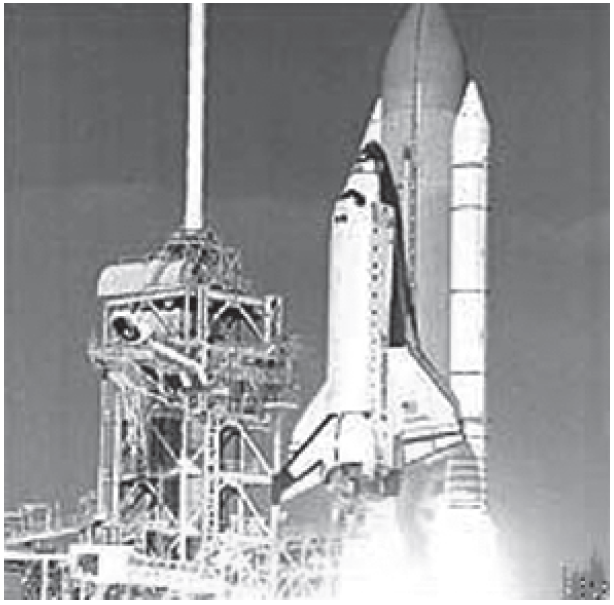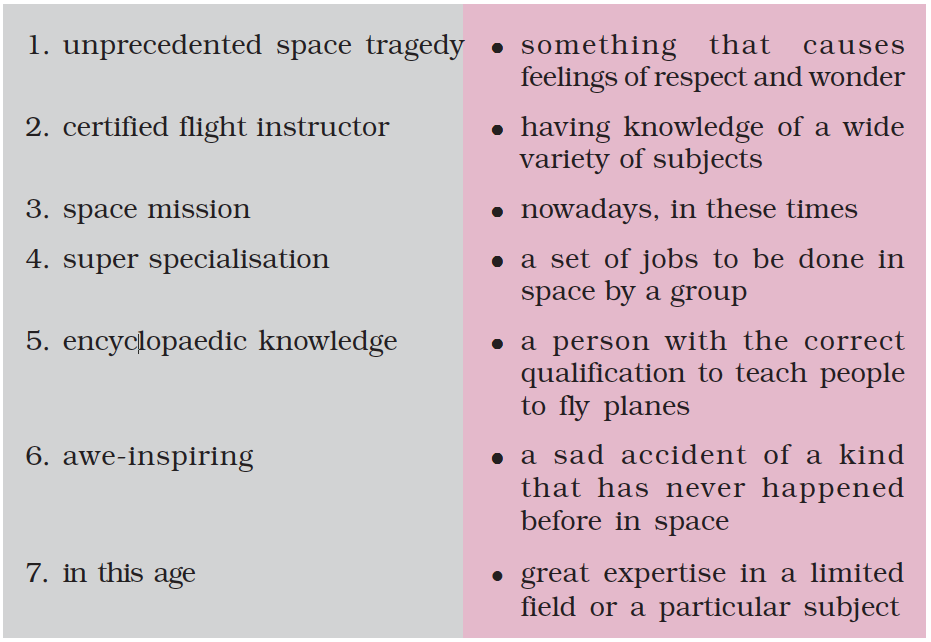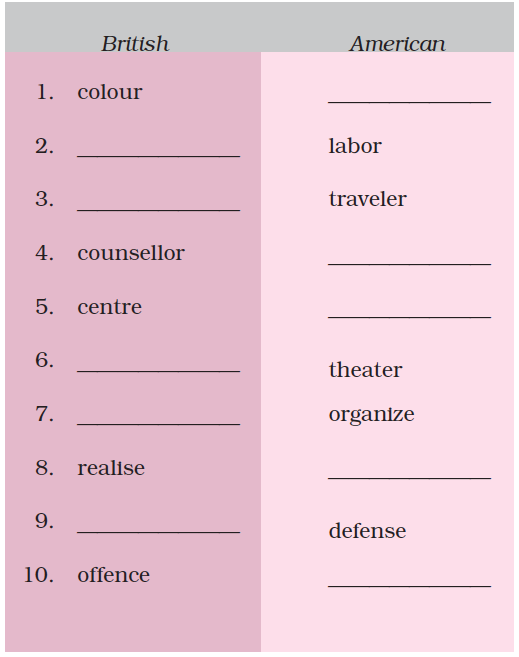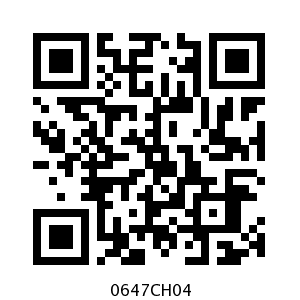Table of Contents
4
An Indian – American Woman in Space: Kalpana Chawla
1. A space shuttle is a spacecraft that is made for repeated space travel (unlike a rocket), for example, between earth and a space station.
2. Use a dictionary to do the tasks below.
(i) Find out the meanings of the following words and phrases (look up the words underlined in the phrases).
(a) naturalised U.S. citizen ———————————
(b) space ——————————————————————
(c) frontiers of space ———————————————
(d) aboard ——————————————————————
(e) lift off (How is it different from ‘take off’?)
——————————————————————————
(f) crew ———————————————————————
(ii) Notice the spellings of these words in this lesson: airplane, program. This is how these words are spelt in American English. How are they spelt in British English?
A News Report
Tragedy in Space
U.S. Space Shuttle Columbia breaks into flames
In an unprecedented space tragedy, U.S. Space Shuttle Columbia, carrying India-born American astronaut Kalpana Chawla and six others, broke apart in flames as it streaked over Texas towards its landing strip on Saturday, 1 February 2003, killing all seven on board.
The shuttle lost contact with NASA at about 9 a.m. (19.30 hrs 1ST) as it came in for landing. It was flying at an altitude of over 200,000 feet and travelling at over 20,000 km. per hour when ground control lost contact with the shuttle.
Columbia had lifted off on 16 January 2003, from the Kennedy Space Center, Florida. It had stayed in orbit for 16 days and the seven-member crew conducted 80 experiments before it began its downward journey, which ended in tragedy. This was Columbia’s 28th space flight and the shuttle was said to be good for 100 flights.
1. Kalpana Chawla said that she never dreamed, as a child in Karnal, that she would cross the frontiers of space. It was enough that her parents allowed her to attend engineering college after she graduated from Tagore School.
2. After a Bachelor of Science degree in aeronautical engineering, against great opposition from her father, she went for a master’s degree to the United States of America. She later earned her Ph.D. in aerospace engineering. Kalpana Chawla was the first Indian–American woman astronaut to blast off from the launch pad at Cape Canaveral, Florida, and participate in a successful mission in space. Her family from India cheered along with staff at the Kennedy Space Center as they watched the Columbia lift off.
3. Kalpana was born in Karnal, Haryana, but was a naturalised U.S. citizen, married to flight instructor Jean-Pierre Harrison. Besides being an astronaut, she was licensed to fly single and multi-engine land airplanes, single-engine seaplanes and gliders. She was also a certified flight instructor. After qualifying as a pilot, Kalpana began to consider another challenge: applying to NASA’s space shuttle program. She was first hired as a research scientist at NASA. In 1994 she was selected by NASA for training as an astronaut.
4. When asked what it was like being a woman in her field she replied, “I really never, ever thought, while pursuing my studies or doing anything else, that I was a woman, or a person from a small city, or a different country. I pretty much had my dreams like anyone else and I followed them. And people who were around me, fortunately, always encouraged me and said, ‘If that’s what you want to do, carry on’.”
5. Kalpana’s first space mission in the space shuttle, Columbia, was 15 days, 16 hours and 34 minutes long. During this time she went around the earth 252 times, travelling 10.45 million kilometres! The crew included a Japanese and a Ukranian astronaut. The crew performed experiments such as pollinating plants to observe food growth in space, and tests for making stronger metals and faster computer chips — all for a price tag of about 56 million dollars.

6. On the Saturday night when the news about the Columbia disaster broke, there was shock and disbelief. The town of Karnal spent a sleepless night as thousands of households stayed glued to their television sets in the hope that Kalpana and the crew had somehow survived. A journalist wrote:
She was a heroine. It takes enormous ability to become an astronaut. You need to know a lot about everything, from biology to astrophysics to aeronautical engineering. In this age of super-specialisation,you must have encyclopaedic knowledge to be an astronaut. Her achievement is awe-inspiring.
7. For millions of young Indians, the story of Kalpana Chawla, a girl from a small town who touched the skies, had become an inspiration. In a message that she sent from aboard the space shuttle, Columbia, to students of her college in Chandigarh, Kalpana said, “The path from dreams to success does exist. May you have the vision to find it, the courage to get onto it… . Wishing you a great journey.” There will surely be many who start off on this journey to fulfil their dreams.
[adapted from Span
January/February 1998]
Working with the text
A. Answer the following questions.
1. Where was Kalpana Chawla born? Why is she called an Indian – American? (3)
2. When and why did she go to the U.S.? Who did she marry? (2, 3)
3. How did she become an astronaut? What gave her the idea that she could be an astronaut? (3)
4. What abilities must an astronaut have, according to the journalist? (6)
5. Describe Kalpana Chawla’s first mission in space. (5)
6. What does Kalpana Chawla say about pursuing a dream? Do you agree with her that success is possible? (7)
B. Read the newspaper report to find the following facts about the Columbia’s ill-fated voyage.
l. Date and place of lift off: ————————————————————
2. Number of astronauts on board: ———————————————––
3. Number of days it stayed in space: ——————————————––
4. Number of experiments done by scientists: —————————––
5. Date of return journey: ———————————————–————–––
6. Height at which it lost contact: ————————————————––
Working with Language
A. Match the following.

B. Use these phrases in sentences of your own, after finding out their meanings.
1. broke apart 4. lifted off 7. cheered along
2. streaked over 5. blast off 8. on board
3. spread across 6. went on 9. carry on
C. We add ‘un-’ to make opposites.
For example, true — untrue.
Add ‘un’– to the words below to make their opposites. Then look up the meanings of the words you have formed in the dictionary.
l. identified ————————— 6. educated ——————––———
2. controlled ——————–—–– 7. interesting ——————––——
3. attended ————————–— 8. qualified —————————––
4. successful ———————–— 9. trained ——————–—–———
5. important ————————— 10. answerable ———–—————
Speaking
In her message to students of her college, Kalpana Chawla said, “May you have the vision to find the path from dreams to success... Wishing you a great journey.”
Form pairs. Use “May you...” and “I wish you/Wishing you” to wish your partner good luck and success in
(i) a sports event,
(ii) a quiz or a competition, and
(iii) a test or examination.
Be sure to thank your partner when she/he wishes you in turn. You may also look up a telephone directory, or go to a post office, and get a list in English and Hindi of standard phrases that can be sent in greeting telegrams anywhere in India. Discuss which of these you might use, and when. Compare the English and Hindi phrases for expressing good wishes. Do you know such phrases in any other language?
Writing
A. Do you have a ‘dream’, or something you very much wish to do? Write a paragraph saying what you want or wish to do. Then say (in another paragraph) how you think you can make your dream come true.
B. Given below are some words that are spelt differently in British and American English. Fill in the blanks accordingly.

Beauty
What is beauty? Try to describe what beauty is, or list some of the things or persons you think are beautiful.
Now let us read a poem on beauty.
Beauty is seen
In the sunlight,
The trees, the birds,
Corn growing and people working
Or dancing for their harvest.
Beauty is heard
In the night,
Wind sighing, rain falling,
Or a singer chanting
Anything in earnest.
Beauty is in yourself.
Good deeds, happy thoughts
That repeat themselves
In your dreams,
In your work,
And even in your rest.
E-Yeh-Shure
Working with the Poem
1. The poet says, “Beauty is heard in …”
Can you hear beauty? Add a sound that you think is beautiful to the sounds the poet thinks are beautiful.
The poet, Keats, said:
Heard melodies are sweet,
But those unheard are sweeter.
What do you think this means? Have you ever ‘heard’ a song in your head, long after the song was sung or played?
2. Read the first and second stanzas of the poem again. Note the following phrases.
corn growing, people working or dancing, wind sighing,
rain falling, a singer chanting
These could be written as
• corn that is growing
• people who are working or dancing
Can you rewrite the other phrases like this? Why do you think the poet uses the shorter phrases?
3. Find pictures of beautiful things you have seen or heard of.
4. Write a paragraph about beauty. Use your own ideas along with the ideas in the poem. (You may discuss your ideas with your partner.)

